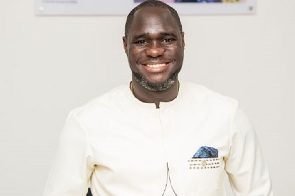Accra, June 25, GNA - The African Peer Review Mechanism (APRM) Governing Council on Monday asked the African Governance Monitoring and Advocacy Project (AfriMAP) to withdraw its report on Ghana's APRM process, since it was mischievous and lacked credibility. The APRM-GC said allusions and claims made in the report were full of inaccuracies, half truths and distortions.
Briefing journalists in Accra, Dr. Francis Appiah, Executive Secretary of the APRM-GC said the APRM-GC demands an unqualified apology from AfriMAP, saying Dr Adotey Bing-Pappoe, the author, rushed in compiling the Report and thus missed out on the vital elements that Ghana's acceding to the APRM process had brought about. Dr. Appiah said the Report claimed that civil society groups were not contacted during the process, "but I can tell you that chiefs were contacted, so were religious groups, the disabled, students, farmers, private sector, community based organizations and women groups across the country.
"Besides all the members on the Governing Council come from civil society groups such as churches, academia and women's group, among others. We are at a loss on what the Report seeks to achieve." He argued that the Report had been void, in that after raising several issues, it failed to back it with scientific and appropriate findings, adding that it did not reflect professionalism. On the argument that the APRM Secretariat in Accra refused to make available documents and reports it had in its possession to the AfriMAP team, Dr Appiah said the documents prepared by CDD, ISSER, CEPA, PEF were already in the public domain and is not only restricted to the APRM Secretariat.
"Indeed, these bodies all have copies and the team could easily have contacted them for it instead of saying that the APRM Secretariat had placed an embargo on the documents," explaining that the secretariat has not put it into the open because the document is too bulky and would not allow it to be taken out of their premises." He however, said they were planning to put the documents on their website.
Dr. Appiah said the liaison office, which the Report said assisted the President, was not set up before the APRM process; rather it was after the recommendations of the process. He said the GC was at a loss as to the motive of the Report because the recommendations of the Afri-MAP Report were already contained in the suggestions in the APRM-GC's own report.
General News of Monday, 25 June 2007
Source: GNA
















